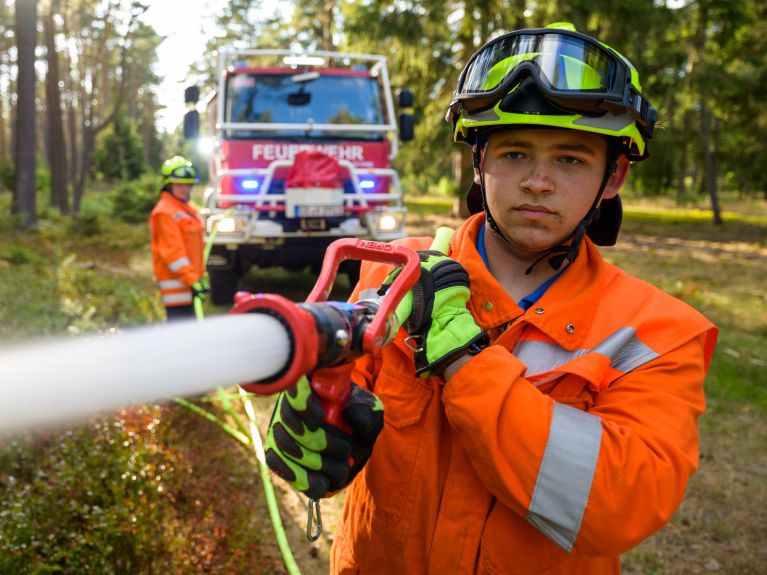Democracy in action
Millions of Germans get involved in voluntary work in their free time - facts and figures about their commitment.

Many things simply wouldn’t happen without them: Volunteers run clubs and associations, teach young people sports or music, look after children and senior citizens, help refugees, put out fires and rescue accident victims. Millions of people in Germany spend their free time taking responsibility for and helping to shape society. One could also say that volunteering is democracy in action. After all, a strong democracy relies on people wanting to get involved and shape it. Volunteers enrich society and are important for its cohesion - what is more, many people simply find volunteering fun.
What does volunteering mean?
The term encompasses various forms of civil society engagement. People voluntarily take on tasks that benefit society as a whole. They are not paid for this work; if at all, only their expenses will be covered.
How many people volunteer in Germany?
Roughly 40 percent of Germans aged 14 and above – around 29 million people – regularly volunteer in their free time for the good of society. This proportion has risen continuously in recent years.
Where do volunteers typically get involved?
The majority of volunteers devote their time to sports,culture and music, social and environmental projects, schools, nurseries and churches. This was revealed by the so-called Family Survey published in 2021 - the largest study of voluntary and unpaid work in Germany. Statistics are compiled every five years, most recently in 2019. Exactly how the coronavirus pandemic affected volunteering is not yet clear, in other words.
One particularly important job is done by helpers in rescue services, voluntary fire brigades and disaster protection organisations.
Many people also devote their time to helping refugees. According to the Family Survey, more than twelve percent of those aged 14 and above in Germany were involved in voluntary activities to support refugees and asylum seekers between 2014 and 2019.


